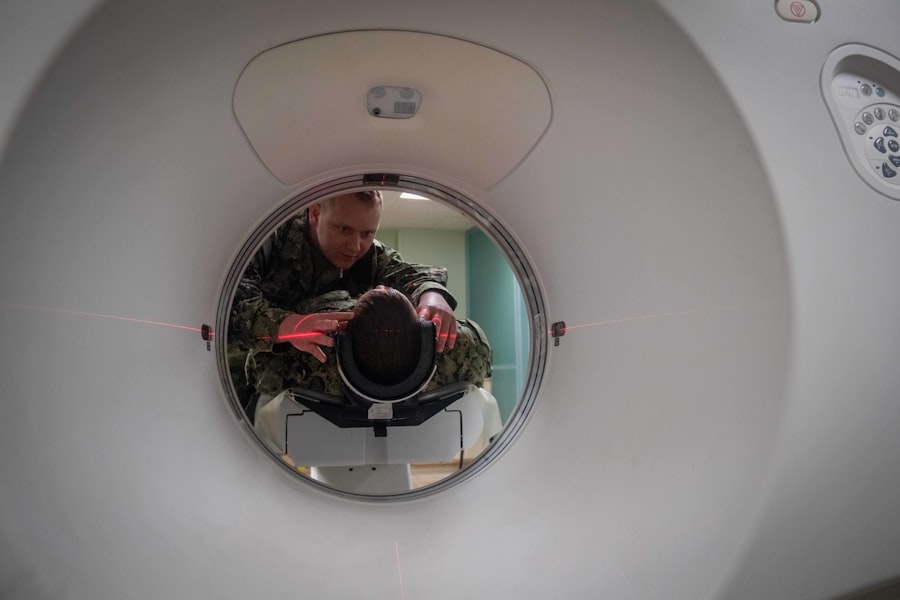Clinical trials are a cornerstone of medical research, serving as the primary method for evaluating the safety and efficacy of new treatments, drugs, and medical devices. These trials are meticulously designed studies that involve human participants and are essential for advancing medical knowledge and improving patient care. The process typically unfolds in several phases, each with distinct objectives, ranging from assessing safety in small groups to evaluating effectiveness in larger populations.
The ultimate goal is to ensure that new interventions are both safe for human use and effective in treating specific conditions. The significance of clinical trials extends beyond the immediate outcomes of the studies themselves; they also play a crucial role in shaping healthcare policies, guiding clinical practice, and informing patient choices. By generating robust data, clinical trials contribute to the body of evidence that healthcare providers rely on when recommending treatments.
Furthermore, they often pave the way for regulatory approvals from agencies such as the U.S. Food and Drug Administration (FDA) or the European Medicines Agency (EMA), which are essential for bringing new therapies to market. As such, understanding the intricacies of clinical trials is vital for stakeholders across the healthcare spectrum, including researchers, clinicians, patients, and policymakers.
Key Takeaways
- Traditional clinical trials face significant challenges that hinder efficiency and participant engagement.
- Innovative solutions, including advanced technology and data analysis, are transforming clinical trial methodologies.
- Emphasizing patient-centric approaches improves trial participation and outcomes.
- Regulatory frameworks are evolving to accommodate new, innovative clinical trial designs.
- Future trends point toward more personalized, technology-driven, and adaptive clinical trial models.
Challenges in Traditional Clinical Trial Methods
Despite their importance, traditional clinical trial methods face numerous challenges that can hinder their effectiveness and efficiency. One of the most significant issues is recruitment and retention of participants. Many trials struggle to meet their enrollment targets due to stringent eligibility criteria, which can exclude large segments of the population.
For instance, a trial investigating a new cancer treatment may only accept patients with specific genetic markers or those who have not undergone prior therapies. This can lead to a lack of diversity in study populations, ultimately affecting the generalizability of the results. Moreover, traditional clinical trials often operate on rigid timelines and protocols that can be difficult to adapt once the study is underway.
This inflexibility can result in delays or even failures if unforeseen challenges arise, such as changes in patient health status or emerging competing therapies. Additionally, the high costs associated with conducting clinical trials can be prohibitive, particularly for smaller biotech companies or academic institutions. These financial burdens can limit the scope of research and deter innovation, as many potential studies may never be initiated due to concerns over funding and resource allocation.
Innovative Solutions in Clinical Trials

In response to these challenges, the field of clinical research is witnessing a wave of innovative solutions aimed at enhancing trial design and execution. One notable approach is the implementation of adaptive trial designs, which allow for modifications to be made during the study based on interim results. This flexibility can lead to more efficient use of resources and quicker decision-making regarding the continuation or alteration of a trial.
For example, if early data suggests that a particular dosage is ineffective or too toxic, researchers can adjust the protocol to explore alternative dosages without starting an entirely new trial. Another innovative solution is the use of decentralized clinical trials (DCTs), which leverage technology to conduct studies remotely. DCTs enable participants to engage in trials from their homes through telemedicine consultations, mobile health applications, and home delivery of investigational products.
This approach not only broadens access for patients who may have difficulty traveling to clinical sites but also enhances participant retention by reducing the burden associated with frequent site visits. The COVID-19 pandemic accelerated the adoption of DCTs, demonstrating their potential to maintain research continuity even in challenging circumstances.
Advantages of Revolutionizing Clinical Trials
| Advantage | Description | Impact Metric |
|---|---|---|
| Faster Patient Recruitment | Utilizing digital platforms and AI to identify and enroll suitable patients quickly. | Reduction in recruitment time by up to 50% |
| Improved Data Accuracy | Automated data collection and real-time monitoring reduce human error. | Decrease in data discrepancies by 30% |
| Cost Efficiency | Streamlined processes and remote monitoring lower operational costs. | Operational cost reduction by 25% |
| Enhanced Patient Engagement | Use of mobile apps and wearables to keep patients informed and involved. | Increase in patient retention rates by 40% |
| Real-Time Data Access | Instant access to trial data enables quicker decision-making. | Reduction in data review time by 60% |
| Broader Patient Diversity | Remote trials allow inclusion of patients from diverse geographic and demographic backgrounds. | Increase in participant diversity by 35% |
Revolutionizing clinical trials through innovative methodologies offers numerous advantages that can significantly impact patient outcomes and the overall healthcare landscape. One primary benefit is improved patient access to cutting-edge therapies. By utilizing decentralized approaches and adaptive designs, researchers can engage a more diverse participant pool, including those from underrepresented populations or those living in remote areas.
This inclusivity not only enriches the data collected but also ensures that findings are more applicable to a broader range of patients. Additionally, these advancements can lead to faster timelines for bringing new treatments to market. Traditional trials often take years to complete due to lengthy recruitment processes and rigid protocols.
In contrast, adaptive designs allow for quicker pivots based on real-time data analysis, while DCTs streamline participant engagement. As a result, promising therapies can reach patients sooner, potentially improving health outcomes and reducing the burden of disease more rapidly than before.
Technology and Data Analysis in Clinical Trials
The integration of technology into clinical trials has transformed how data is collected, analyzed, and utilized throughout the research process. Electronic data capture (EDC) systems have largely replaced paper-based methods, allowing for more efficient data collection and real-time monitoring of trial progress. These systems facilitate better data management and reduce the risk of errors associated with manual entry.
Furthermore, they enable researchers to access comprehensive datasets that can be analyzed using advanced statistical methods. Big data analytics plays a crucial role in enhancing the quality of insights derived from clinical trials. By harnessing vast amounts of data from various sources—such as electronic health records (EHRs), genomic databases, and patient-reported outcomes—researchers can identify trends and correlations that may not be apparent through traditional analysis methods.
Machine learning algorithms can also be employed to predict patient responses to treatments based on historical data, allowing for more personalized approaches in trial design and execution.
Patient-Centric Approaches in Clinical Trials

A paradigm shift towards patient-centric approaches is gaining momentum within clinical research, emphasizing the importance of incorporating patient perspectives into trial design and implementation. Engaging patients as active partners rather than passive subjects can lead to more relevant research questions and improved study designs that align with patient needs and preferences. For instance, involving patients in discussions about trial protocols can help identify barriers to participation and inform strategies to enhance recruitment and retention.
Moreover, patient-centric approaches extend beyond recruitment; they also encompass ongoing communication throughout the trial process. Providing participants with regular updates on study progress and findings fosters transparency and trust between researchers and participants. Additionally, incorporating patient-reported outcomes (PROs) into trial endpoints allows researchers to capture data that reflects patients’ experiences and quality of life during treatment.
This holistic view not only enriches the data collected but also ensures that trial results resonate with those most affected by the research.
Regulatory Considerations for Innovative Clinical Trials
As innovative methodologies reshape the landscape of clinical trials, regulatory bodies face the challenge of adapting their frameworks to accommodate these changes while ensuring participant safety and data integrity. Regulatory agencies like the FDA have begun to recognize the potential benefits of adaptive designs and decentralized trials but continue to emphasize the need for rigorous oversight. For instance, while DCTs offer flexibility in participant engagement, they also raise questions about data security, informed consent processes, and maintaining compliance with Good Clinical Practice (GCP) guidelines.
To address these concerns, regulatory agencies are increasingly collaborating with industry stakeholders to develop guidance documents that outline best practices for implementing innovative trial designs. These guidelines aim to strike a balance between fostering innovation and safeguarding participant welfare. Additionally, ongoing dialogue between regulators and researchers is essential for navigating the complexities associated with new technologies and methodologies in clinical research.
Future Trends in Revolutionizing Clinical Trials
Looking ahead, several trends are poised to further revolutionize clinical trials in ways that enhance efficiency, inclusivity, and patient engagement. One emerging trend is the increased use of artificial intelligence (AI) in various aspects of clinical research—from patient recruitment algorithms that identify suitable candidates based on EHR data to predictive modeling that assesses potential treatment outcomes. As AI technology continues to evolve, its applications within clinical trials will likely expand, leading to more streamlined processes and improved decision-making.
Another significant trend is the growing emphasis on real-world evidence (RWE) in clinical research. RWE refers to data collected outside traditional clinical trial settings—such as observational studies or registries—that can provide valuable insights into treatment effectiveness in broader populations. Regulatory agencies are increasingly recognizing RWE’s potential to complement traditional trial data, particularly for post-marketing surveillance or when evaluating long-term treatment effects.
As these trends unfold, it is clear that the future of clinical trials will be characterized by greater adaptability, enhanced patient engagement, and a commitment to leveraging technology for improved outcomes. The ongoing evolution of clinical research methodologies promises not only to address existing challenges but also to unlock new opportunities for advancing medical science and improving patient care on a global scale.




